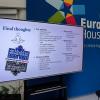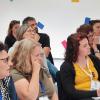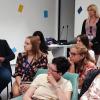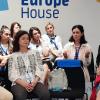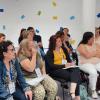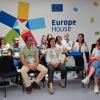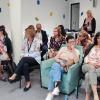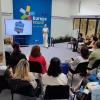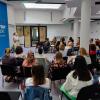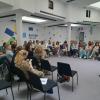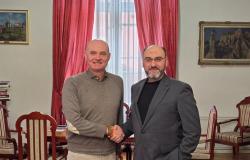„Erasmus gone wrong“ session on the third day of 11th Staff Week
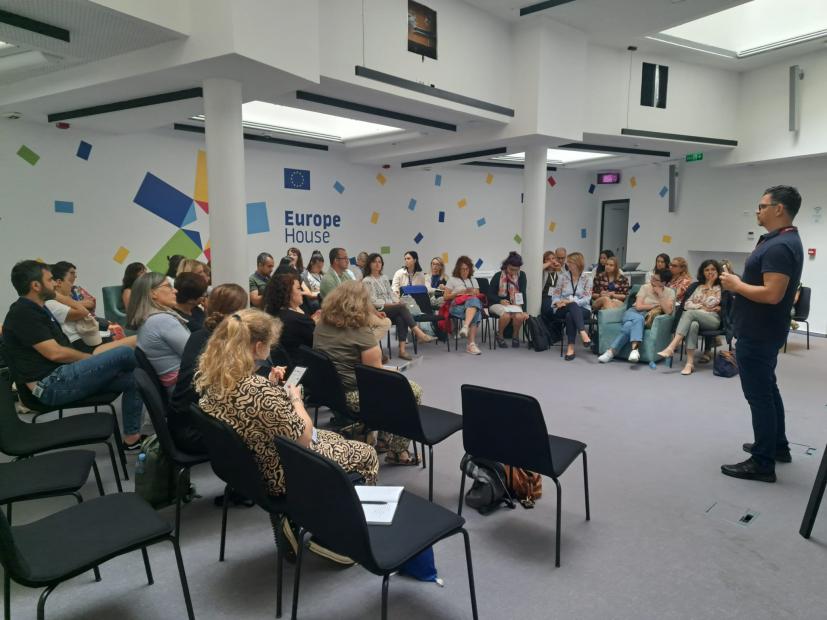
Sesija „Erasmus gone wrong“ trećeg dana 11. međunarodne sedmice obuke osoblja na UNSA
On the third day of Staff Week, the University of Sarajevo organized the session "Erasmus gone wrong," where challenges and problems encountered by Erasmus coordinators in coordinating and administering the Erasmus+ program were presented, as well as examples of good practices in solving them. The session was organized in Europe House, an institution where the University of Sarajevo cooperates well, especially in presenting programs and events financed by the EU. This session was led and presented by mr. sci. Adnan Rahimić, senior expert associate for international relations, and Dr. Jasna Bošnović, head of the International Relations Office at the University of Sarajevo. Every year, this office conducts research with more than 100 institutions across Europe, examining how to implement the Erasmus+ program, from finding partners, announcing calls for mobility, nominations, sending students and staff, monitoring their mobility, and returning home and recognition. A few of the most common challenges that coordinators face when implementing the program are singled out: (non-)announcement of invitations and transparency of selection, different forms of nomination and administration, impossibility of implementing "Erasmus without paper", problems with visas and student accommodation, language barriers that students face encounter, drawing up a study contract for students, cross-cultural challenges and shocks that students experience when coming to a new country and meeting them with a new culture, different interpretation of certain activities due to various laws (EU vs. non-EU), tuition fees and inflation, (not ) recognition of the achieved results for students and staff, the impact of world events on mobility (coronavirus, wars, etc.) and other challenges that we face every day. Participants could comment on each item, give their opinion, or recount their experience with the same or similar events. This was an ideal opportunity to exchange experiences and learn that we share the same and similar challenges, regardless of whether it is an EU member or outside it. In this way, a network of experts was created through which information was exchanged. Examples of good practice were presented, which will help further joint work to improve the Erasmus+ program and adapt it to world changes, thus satisfying the academic and professional needs of students and staff - the ultimate participants of this program.




